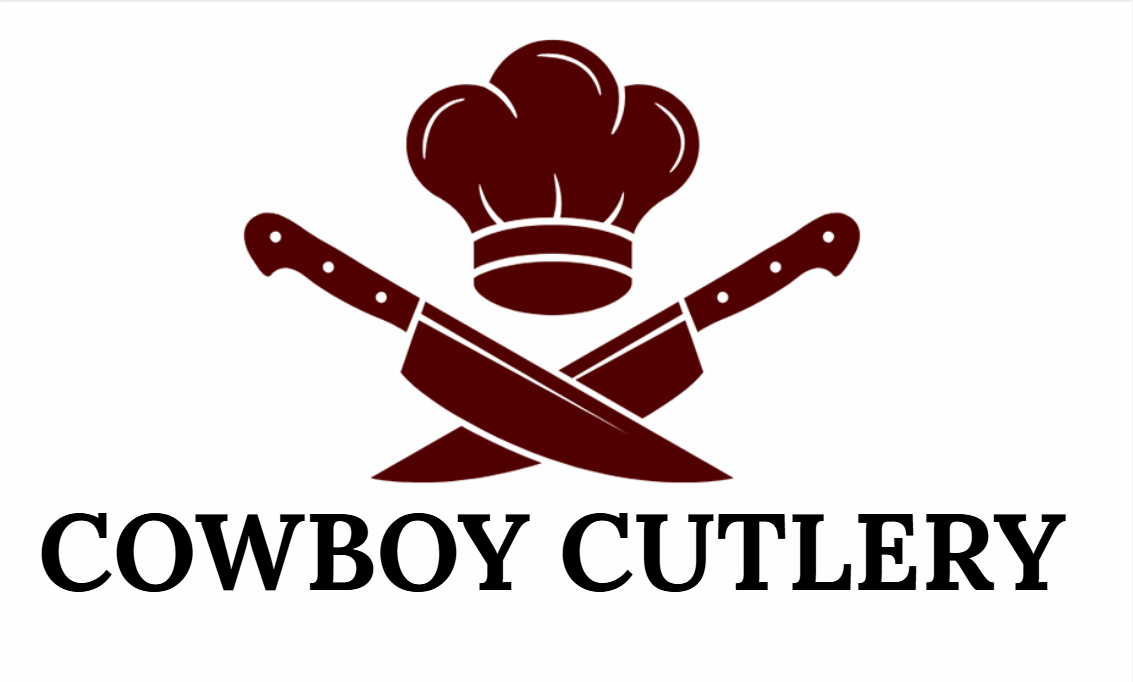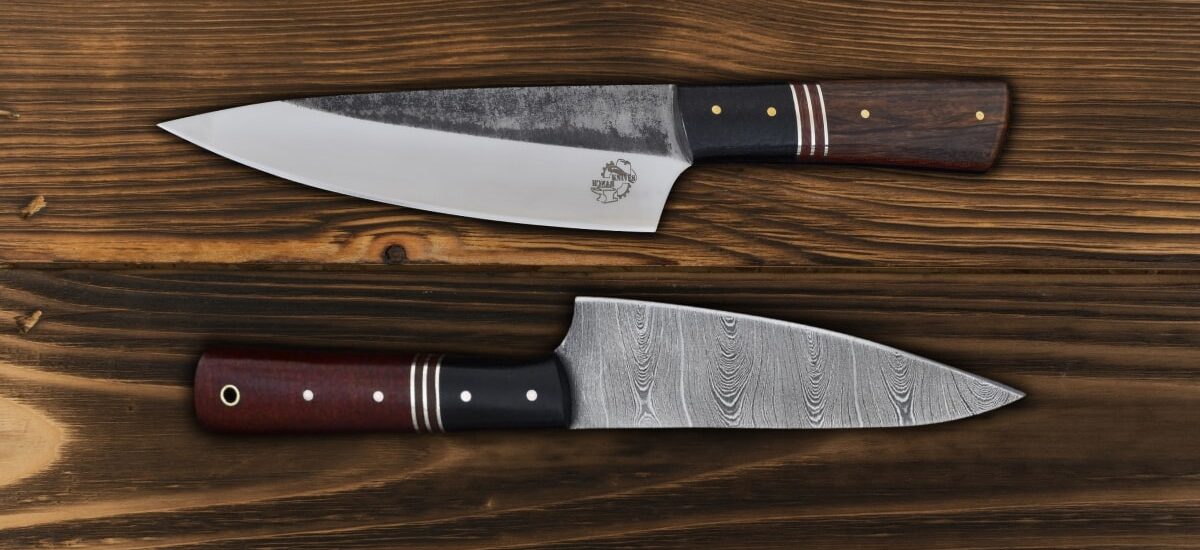Chef knife is straight away the king when it comes to selecting the right tools to adorn your kitchen. Whether you are chopping onions or cutting into a juicy steak, a good blade matters it all. Among the many options available today, two types stand out: the stainless steel chef knife and the Damascus chef knife. But which one should be in your kitchen?
In this detailed guide, we’ll compare both to help you choose the blade that best fits your cooking needs—whether you’re a beginner cook or shopping for a professional knife set.
What Is a Stainless Steel Chef Knife?
The stainless steel chef knives consist of a blend of iron, carbon, and chromium (minimum 10.5 percent) to form a rust resistant alloy. Such a knife is found in every house and professional kitchen as it is convenient and does not require special care.
Advantages of Stainless Steel Chef Knives
- Corrosion-Resistant: Chromium provides an innate resistance to rust and stain.
- Low Maintenance: If you are the type of person who does not wish to take regular care of your knife, then this is the type of knife that you need.
- Inexpensive: Compared to several knives made of Damascus steel, stainless steel knives are less costly.
- Stainless steel knives can be found easily, in neighborhood shops as well as in exclusive stores.
Cons of Stainless Steel Chef Knives
- Moderate Edge Retention: They will require sharpening more frequently than Damascus steel knives.
- Aesthetic Appeal: Stainless steel does not have the same wavy patterns that Damascus kitchen knives have.
- Not so Sharp: When compared to high-carbon or Damascus ones they tend to be not so razor-sharp.
What Is a Damascus Chef Knife?
A Damascus chef knife is crafted using layered steel—usually a blend of stainless and high-carbon materials—folded and forged together to create both function and visual beauty. The result? A knife that looks like a work of art and performs like a culinary beast.
Pros of Damascus Chef Knives
- Better Sharpness: They also retain a better edge due to their high-carbon core.
- Exceptional Edge Retention: Sharpening occurs less often.
- Unique Patterns: Every Damascus steel knife has its own mesmerizing design.
- High Quality Workmanship: Such knives are usually handmade or forged to perfection.
Cons of Damascus Chef Knives
- More Expensive: A quality Damascus kitchen knife will cost more than its stainless steel counterpart.
- Higher Care Knives: Due to the high-carbon content, such knives must be washed and dried as soon as they are used.
- Sham Damascus Alert: A lot of knives are marketed with etched-on pattern, although they are not actually layered steel. You should always purchase them through reputable sources.
Head-to-Head: Stainless Steel vs. Damascus Chef Knife
So how do each of the types fare in actual kitchen conditions? Let us find out.
1. Sharpness
Damascus chef knives emerge as the winner. They easily slice through meats, vegetables and herbs as if they were butter with their sharp edge.
Knives made of stainless steel are sharp as well–just not as long-lasting and laser-precise.
2. Durability
Stainless steel knives are not easily rusted or corroded and they can be used roughly.
Damascus steel knives are harder in edge retention but are subject to rust when not well taken care of.
3. Maintenance
In this case, the victorious material is stainless steel, wash, wipe and go.
Damascus needs hand-washing and quick drying, yet it will pay you back with long-lasting performance.
4. Aesthetics
Damascus knives glisten with the wave patterns.
Stainless knives are hygienic and business-like, more prosaic.
5. Cost
Stainless steel knives match the majority of budgets.
Damascus knives represent a commitment—but then so are serious cooks.
When to Choose a Stainless Steel Chef Knife
A chef knife made of stainless steel is an excellent general purpose knife:
- Novice cooks
- Individuals interested in best kitchen knives sets that do not require high maintenance
- Families that put more emphasis on convenience than on craftsmanship
When there is a need to create your initial kitchen utility set or you require a cheap, yet reliable knife, stainless steel is the solution.
When to Choose a Damascus Chef Knife
A Damascus chef knife is ideal if you:
- Use ovens frequently and desire the best slicing accuracy
- Value tools and design beauty
- Are building a high-end or professional knife set
- Want a present that looks and works
A quality Damascus steel knife is more than just a kitchen tool—it’s a statement of culinary excellence.
Common Myths About Damascus Knives
Before you go shopping for a Damascus kitchen knife, let’s bust a few myths:
Myth 1: Damascus is all patterned knives.
There are a lot of knives which are just laser-engraved with a pattern and do not perform the same.
Myth 2: Damascus knives are too fragile.
Real Damascus steel knives by contrast are tough and competent, you simply need to handle them with some care.
Myth 3: Damascus is all about appearance.
True Damascus is not just about form or function since it depends on the bladesmiths to make it.
What About Knife Sets?
Both stainless steel and Damascus are available in full sets in case you are in the market to upgrade your entire kitchen arsenal.
A professional knife set made from stainless steel will include a variety of blades for everyday cooking and is often more budget-friendly.
A Damascus steel knife set, while more expensive, offers unmatched style, sharpness, and edge retention.
For chefs who take pride in their kitchen tools, the best kitchen knives sets often include at least one Damascus chef knife for precision tasks.
The Final Slice: Which Knife Belongs in Your Kitchen?
Choosing between a stainless steel chef knife and a Damascus chef knife is all about your cooking style, maintenance preference, and aesthetic taste.
When what you want is simple, easy to care, and has a good performance at an excellent price, stainless steel is the way to go.
When you are after the best quality sharpness, workmanship and a piece of conversation in your kitchen, then Damascus is your blade.
What’s the bottom line? Both knives may be ideal—as long as they fit your requirements. But for those who want a blend of art and performance, the Damascus kitchen knife will always stand out behind the blade.


